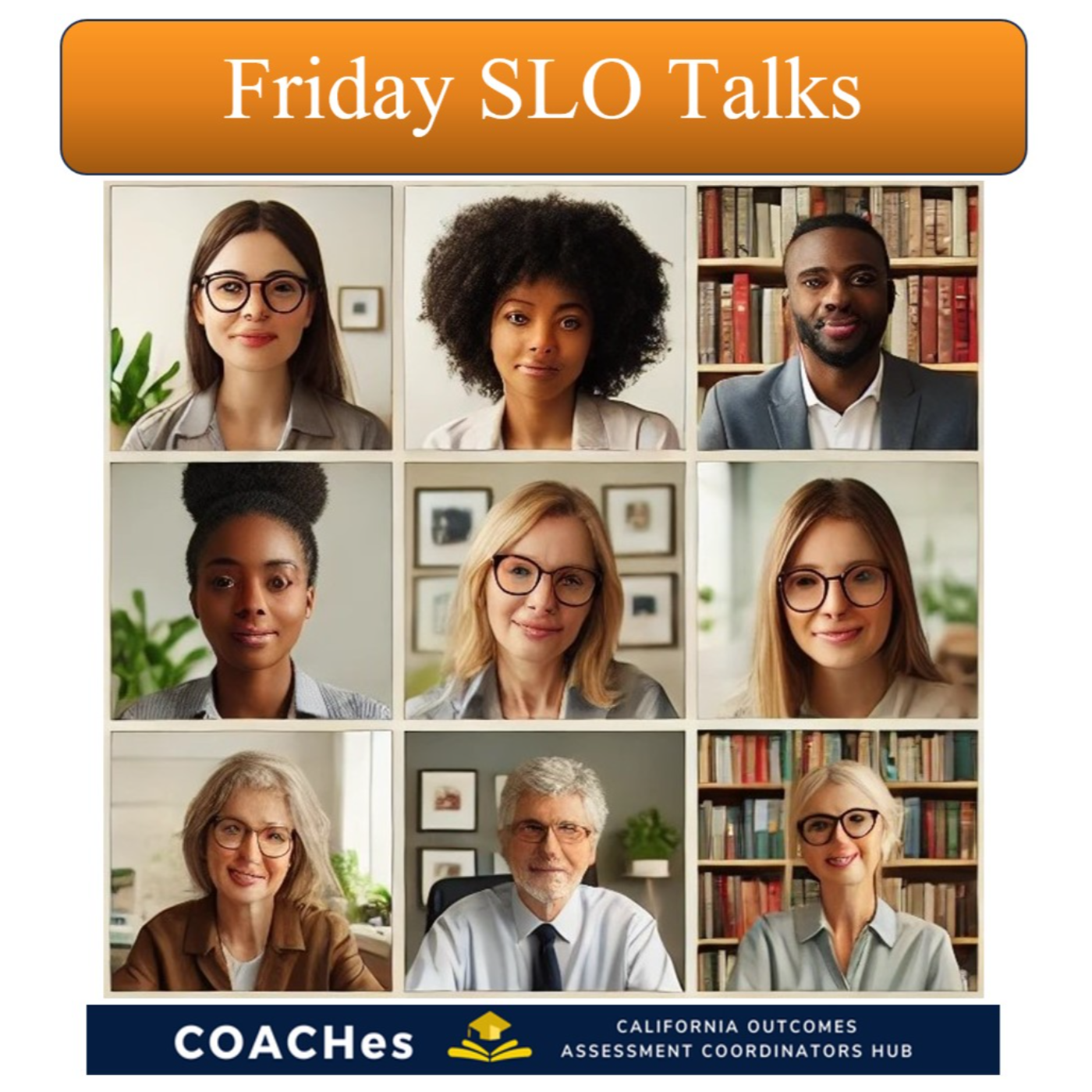Listen "Assessment of Student Learning: The Case for Observable Behavior with Dr. Jarek Janio"
Episode Synopsis
Podcast Episode: Assessment of Student Learning – The Case for Observable Behavior with Dr. Jarek JanioIn this episode of Friday SLO Talks, organized by the California Outcomes Assessment Hub (COACHES), Dr. Jarek Janio from Santa Ana College led a compelling discussion on the role of observable behavior in assessing student learning. The session challenged traditional metrics of success such as grades, graduation rates, and course completion by questioning whether they truly reflect learning or simply institutional priorities.The Gap Between Institutional and Student Success MetricsDr. Janio identified a disconnect between what students seek practical skills and competencies and how institutions evaluate success. He argued that while colleges track graduation and employment rates, these indicators do not necessarily capture learning outcomes. He invited participants to consider alternative assessment strategies that focus on what students can do rather than just what they remember or complete.The Role of Learning Theories in AssessmentThe discussion transitioned to educational theories, including behaviorism, constructivism, and transformative learning. Dr. Janio highlighted that these frameworks influence how faculty teach and assess learning, yet they often fail to translate into meaningful, skill-based assessment practices. He proposed flipping Bloom’s Taxonomy on its head starting with application and problem-solving before introducing memorization so that students first engage with real-world challenges and later refine their foundational knowledge in context.Observable Behavior as the Key to Effective AssessmentDr. Janio argued that the only valid measure of learning is observable behavior. He criticized traditional assessments like standardized tests and essays, noting that they often fail to capture real competencies. Instead, he advocated for:Performance-Based Assessments: Evaluating students based on their ability to demonstrate skills in real-world scenarios.Portfolios and Projects: Allowing students to compile evidence of their learning over time.Self-Assessment and Peer Feedback: Encouraging students to reflect on their own progress and engage in meaningful discussions about their learning.AI-Assisted Assessment: Leveraging generative AI tools to analyze student responses, create adaptive learning paths, and enhance formative assessment strategies.The Role of AI in AssessmentDr. Janio explored how artificial intelligence can support assessment by automating rubric development, generating feedback, and helping faculty analyze student progress over time. However, he cautioned against over-reliance on AI-generated responses, emphasizing that faculty must take responsibility for interpreting and applying AI insights in a meaningful way.Redefining Student Engagement and SuccessA significant portion of the discussion focused on student engagement. Dr. Janio questioned whether traditional engagement metrics such as class participation, assignment completion, and time spent in tutoring centers actually indicate learning. He proposed that engagement should instead be measured by students’ ability to articulate and apply what they have learned in meaningful ways.The episode concluded with a call to action: Educators must rethink assessment practices to ensure they capture real learning, rather than relying on outdated proxies like grades and course completion. By shifting toward skill- and competency-based assessment, faculty can provide students with a more meaningful and equitable learning experience.
 ZARZA We are Zarza, the prestigious firm behind major projects in information technology.
ZARZA We are Zarza, the prestigious firm behind major projects in information technology.
